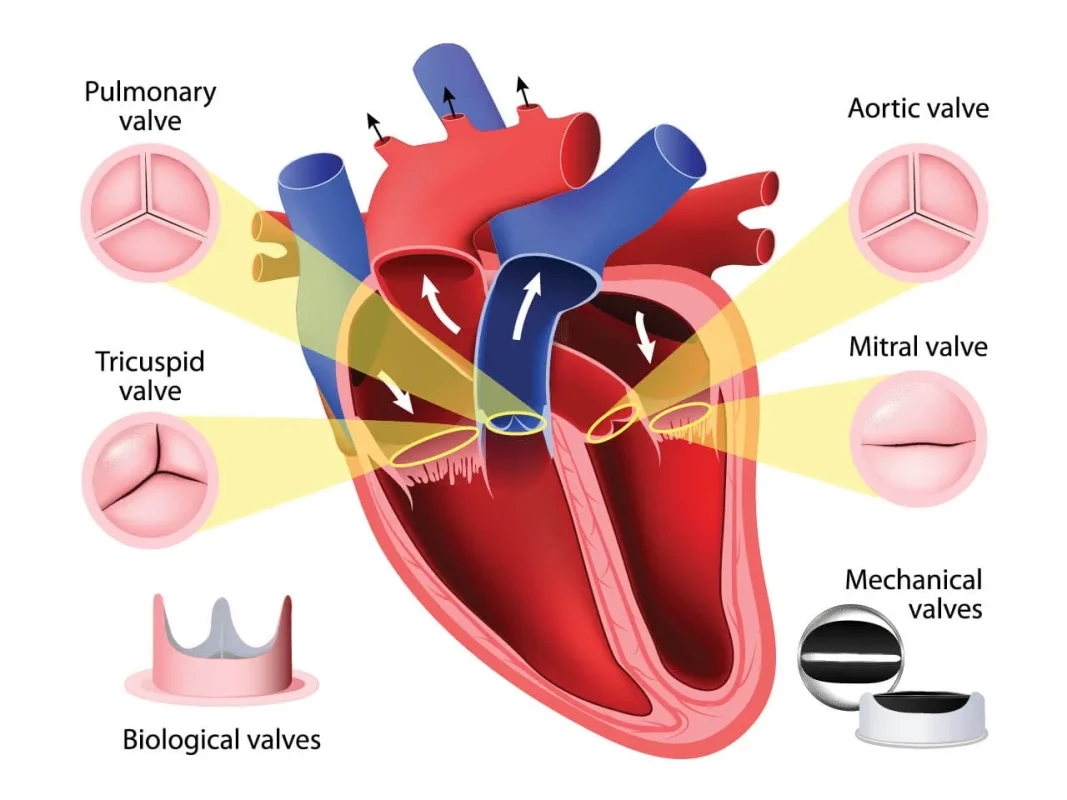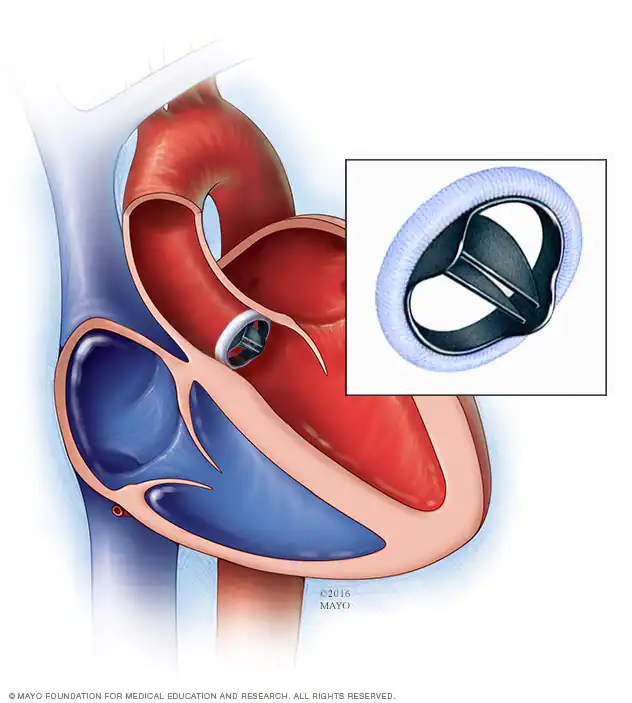Heart Valve Surgery in Iran – Repair and Replacement
Heart Valve Surgery in Iran is a type of surgical procedure that is used to repair or replace damaged or diseased heart valves. The heart valves are responsible for regulating blood flow through the heart, and when they become damaged or diseased, they can interfere with normal blood flow and place extra strain on the heart.
Here is an overview of heart Valve Surgery in Iran:
1. Anesthesia: The patient is given general anesthesia, which means they are asleep and pain-free during the procedure.
2. Incision: The surgeon makes an incision in the chest to access the heart. The location and size of the incision will depend on the specific procedure being performed.
3. Heart-lung machine: The patient is connected to a heart-lung machine, which temporarily takes over the function of the heart and lungs during the surgery.
4. Repair or replacement of the valve: The surgeon may repair the damaged valve by reshaping or reinforcing it, or they may replace the valve with a mechanical or biological valve. The choice of valve will depend on the patient’s age, health status, and other factors.
5. Closure: The incision is closed with sutures or staples, and a sterile dressing is applied to the wound.
After the surgery, the patient is moved to a cardiac intensive care unit for monitoring and management of pain and other symptoms. The length of the hospital stay will vary depending on the individual patient’s health status and the extent of the surgery, but most patients are able to leave the hospital within 4-7 days.
Recovery from heart Valve Surgery in Iran can take several weeks to several months, and patients may need to follow specific instructions from their healthcare team to facilitate healing and reduce the risk of complications. This may include following a heart-healthy diet, engaging in light exercise, and avoiding certain activities for a period of time.
Heart Valve Surgery in Iran is a major surgical procedure that carries certain risks, such as bleeding, infection, and stroke, and it’s important to discuss the risks and benefits with your healthcare provider before deciding on treatment. However, for many patients with damaged or diseased heart valves, heart Valve Surgery in Iran can be an effective treatment option that can improve quality of life and reduce the risk of serious complications.
Types of heart Valve Surgery in Iran
There are several types of heart valve surgery, and the type of surgery recommended will depend on the specific condition being treated, the location and severity of the valve damage, and the patient’s overall health status. Here are some of the most common types of heart Valve Surgery in Iran:
1. Valve repair: Valve repair surgery is used to treat certain types of valve damage, such as a leaky valve or a valve that is narrowed. During the surgery, the surgeon may reshape or reinforce the damaged valve to improve its function.
2. Valve replacement: Valve replacement surgery is used to treat more severe valve damage or disease, and it involves replacing the damaged valve with a mechanical or biological valve. Mechanical valves are made of durable materials, such as metal, and can last for many years, but they require lifelong use of blood-thinning medication to prevent blood clots. Biological valves, which are made from animal or human tissue, do not require blood-thinning medication but may need to be replaced after several years.
3. Ross procedure: The Ross procedure involves replacing a damaged aortic valve with the patient’s own pulmonary valve, which is then replaced with a pulmonary valve from a donor. This procedure is typically used in younger patients who may need multiple valve replacements over their lifetime.
4. Transcatheter aortic valve replacement (TAVR): TAVR is a minimally invasive procedure used to replace a damaged aortic valve. During the procedure, a catheter is inserted through a blood vessel in the groin or chest and guided to the heart, where a new valve is implanted.
5. Mitral valve repair: Mitral valve repair surgery is used to treat a leaky or prolapsed mitral valve. During the surgery, the surgeon may reshape or reinforce the valve to improve its function.
The choice of surgery will depend on the specific condition being treated and the patient’s overall health status. It’s important to discuss the risks and benefits of each procedure with your healthcare provider to determine the best course of action for your specific situation.

When is heart valve surgery necessary?
Heart Valve Surgery in Iran is typically recommended when a heart valve is damaged or diseased to the point that it is interfering with normal blood flow and placing extra strain on the heart. Here are some of the most common conditions that may require heart Valve Surgery in Iran:
1. Aortic stenosis: Aortic stenosis is a condition in which the aortic valve, which regulates blood flow from the heart to the rest of the body, becomes narrowed, making it harder for blood to flow through. This can lead to symptoms such as chest pain, shortness of breath, and fatigue, and may require valve replacement surgery.
2. Mitral regurgitation: Mitral regurgitation is a condition in which the mitral valve, which regulates blood flow between the two chambers of the left side of the heart, becomes leaky, allowing blood to flow back into the heart. This can lead to symptoms such as shortness of breath, fatigue, and palpitations, and may require valve repair or replacement surgery.
3. Mitral valve prolapse: Mitral valve prolapse is a condition in which the mitral valve becomes stretched or floppy, causing it to bulge back into the left atrium of the heart. This can lead to symptoms such as chest pain, palpitations, and shortness of breath, and may require valve repair surgery.
4. Aortic regurgitation: Aortic regurgitation is a condition in which the aortic valve becomes leaky, allowing blood to flow back into the heart. This can lead to symptoms such as chest pain, fatigue, and shortness of breath, and may require valve repair or replacement surgery.
5. Endocarditis: Endocarditis is an infection of the heart valve, which can cause damage and may require valve repair or replacement surgery.
The decision to recommend heart Valve Surgery in Iran will depend on the specific condition being treated, the severity of the valve damage, and the patient’s overall health status. It’s important to discuss the risks and benefits of heart valve surgery with your healthcare provider to determine the best course of action for your specific situation.
What are some alternative treatments for heart valve conditions?
There are some alternative treatments for heart valve conditions, but it’s important to note that these treatments may not be appropriate for everyone and should be discussed with a healthcare provider. Here are some alternative treatments for heart valve conditions:
1. Medications: Certain medications, such as diuretics, beta-blockers, and blood thinners, may be used to manage symptoms of heart valve conditions, such as high blood pressure and heart failure.
2. Lifestyle changes: Making lifestyle changes, such as eating a heart-healthy diet, getting regular exercise, quitting smoking, and managing stress, can help improve heart health and reduce symptoms of heart valve conditions.
3. Balloon valvuloplasty: Balloon valvuloplasty is a minimally invasive procedure that may be used to treat a narrowed heart valve. During the procedure, a balloon-tipped catheter is inserted into the narrowed valve and inflated to widen the opening and improve blood flow.
4. Transcatheter valve replacement: Transcatheter valve replacement is a minimally invasive procedure that may be used to replace a damaged or diseased heart valve. During the procedure, a catheter is inserted through a blood vessel and guided to the heart, where a new valve is implanted.
It’s important to note that while these alternative treatments may be effective for some patients, they may not be appropriate for all patients or all types of heart valve conditions. The decision to pursue alternative treatments should be made in consultation with a healthcare provider who can evaluate the individual patient’s condition and recommend the most appropriate course of treatment.
How long will my valve last?
The lifespan of a heart valve depends on several factors, including the type of valve used, the patient’s age and overall health, and any underlying medical conditions. Here is some information about the expected lifespan of different types of heart valves:
1. Mechanical valves: Mechanical heart valves are made of durable materials such as metal, and they can last for many years. However, patients who receive mechanical valves will need to take blood-thinning medication for the rest of their lives to prevent blood clots from forming on the valve. The lifespan of a mechanical valve can range from 10 to 20 years or more.
2. Biological valves: Biological heart valves are made from animal or human tissue, and they do not require lifelong blood-thinning medication. However, they may not last as long as mechanical valves, with an average lifespan of 10 to 15 years.
3. Ross procedure: The Ross procedure involves replacing a damaged aortic valve with the patient’s own pulmonary valve, which is then replaced with a pulmonary valve from a donor. This procedure is typically used in younger patients who may need multiple valve replacements over their lifetime. The lifespan of the pulmonary valve used in the Ross procedure can vary, with some patients requiring another valve replacement within 10 years and others going more than 20 years without needing another replacement.
It’s important to note that the lifespan of a heart valve can vary widely depending on the patient’s individual factors. Patients who receive heart valve replacements will need to be monitored regularly by their healthcare provider to ensure that the valve is functioning properly and to detect any potential complications.

